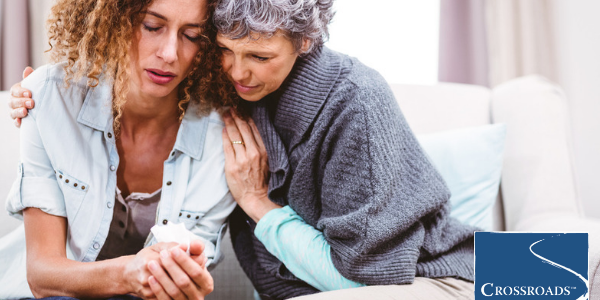When someone you love is recovering from an eating disorder, it can be tough to know what to say or do. You want to help, but what does that mean? You want to be sensitive to their needs, but you also don’t want to walk on egg shells and make the relationship awkward. They’re dealing with enough already that they likely don’t want their eating disorder recovery to be the center of attention. However, there are plenty of ways that you can support them and create an environment where they can heal at their own pace.
Plan Food-Free Activities
When people get together, it often centers on food; going out for a meal, grabbing a coffee, or socializing around the refreshments table at a party. Though eating disorders are rarely actually about food, it can be a trigger. When spending time together, opt for activities that are non-food-related such as going for a walk through the park, taking a bike ride, painting pottery, making crafts, or playing board games. This can take some of the pressure off and allow your loved one to feel more comfortable and relaxed while having a good time because no eating is involved.
Practice Positivity
Though you may not be struggling with an eating disorder, you never know when someone around you may be. Be mindful of how you talk about yourself and others and avoid making body references about how you look in clothing. Instead, remark about how you love that the color of that sweater makes your friend’s eyes pop or how you’re feeling really strong today.
Body positivity is important for eating disorder recovery because everyone’s bodies look different, yet they can all be healthy. There is not one definition of what a person should look like. Learn to love yourself for every perceived flaw or imperfection and make sure you feel good in your own skin. Your loved one doesn’t need to hear you being super critical of yourself when they’re relearning to love their own body. It can also be good for your own mental health to keep a positive outlook.
Mind Your Manners
Recovering from an eating disorder is a very personal journey. Your loved one may still be in outpatient treatment or attending therapy to help them manage their recovery. Trust that they are applying what they have learned and doing what is best for their health. They don’t need someone hovering over them questioning what they are or aren’t eating, how much, or when. They are probably already aware enough of these things on their own. Be supportive without being critical or accusatory.
If you do happen to be eating together, turn the topic of conversation to something else. You don’t have to talk about food or their recovery. Ask about the last movie they saw, what their plans are for the weekend, or if they want to check out that new art exhibit with you. Focus on things you have in common, general topics of discussion, or funny stories to keep things light.
Be Available
Your loved one’s needs may change while they’re recovering from an eating disorder, and that’s okay. If you’re not sure how to help, ask! Let them tell you what they need or how you can be of use. They may just want someone to sit and listen, someone to provide a distraction, someone to give them a ride to therapy, or someone to try a new hobby with them. Whatever it may be, let them know that you are there to support them. You don’t have to have all the answers and always be trying to give advice. Maybe that’s not what they need right then.
Eating disorder recovery takes time, and everyone’s journey may be slightly different. As a friend or family member, focus on ways that you can improve your own health and well-being – physically and mentally – and be supportive of your loved one. If you don’t know what to do, ask. It is a learning experience for everyone.
Eating disorder treatment programs like those at Crossroads help individuals to manage their recovery while also educating family and getting them involved as well. Programs are tailored to meet women’s unique needs, whether they’re struggling with addiction and an eating disorder together or are looking for ongoing support with recovery.


















